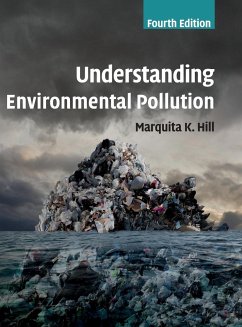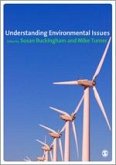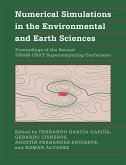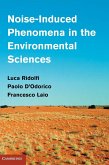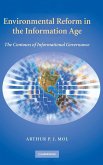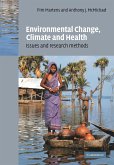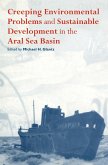Hinweis: Dieser Artikel kann nur an eine deutsche Lieferadresse ausgeliefert werden.
Marquita K. Hill holds a Ph.D. in comparative biochemistry from the University of California, Davis. She was assistant and then associate professor in the biochemistry department at Virginia Tech, Blacksburg. Later, at the University of Maine's Department of Chemical Engineering, she conducted research funded by the US Department of Energy and the US Environmental Protection Agency. Then, after educating herself as an environmental scientist, she taught courses in environmental pollution, which led to the text Understanding Environmental Pollution. She was co-founder of the Green Campus Consortium of Maine, an organization working toward sustainable environmental management in Maine's higher-education institutions. For nine years she served on an advisory committee for International Paper's mill in Skowhegan, Maine. During those same years she was a visiting scholar at the Harvard School of Public Health.
Preface
Acknowledgements
List of abbreviations and acronyms
1. Understanding pollution
2. Reducing pollution to reduce risk
3. Chemical toxicity
4. Chemical exposures and risk assessment
5. Ambient air pollution
6. Acid deposition
7. Global warming and ocean acidification
8. Energy and pollution
9. Stratospheric ozone depletion
10. Water pollution
11. Drinking water pollution
12. Solid waste
13. Hazardous waste
14. Persistent, bioaccumulative, and toxic chemicals
15. Metals
16. Pesticides
17. Indoor air pollution
18. Zero waste, zero emissions
Appendix. Chemistry - basic concepts
Index.
Preface; Acknowledgements; List of abbreviations and acronyms; 1. Understanding pollution; 2. Reducing pollution to reduce risk; 3. Chemical toxicity; 4. Chemical exposures and risk assessment; 5. Ambient air pollution; 6. Acid deposition; 7. Global warming and ocean acidification; 8. Energy and pollution; 9. Stratospheric ozone depletion; 10. Water pollution; 11. Drinking water pollution; 12. Solid waste; 13. Hazardous waste; 14. Persistent, bioaccumulative, and toxic chemicals; 15. Metals; 16. Pesticides; 17. Indoor air pollution; 18. Zero waste, zero emissions; Appendix. Chemistry - basic concepts; Index.

